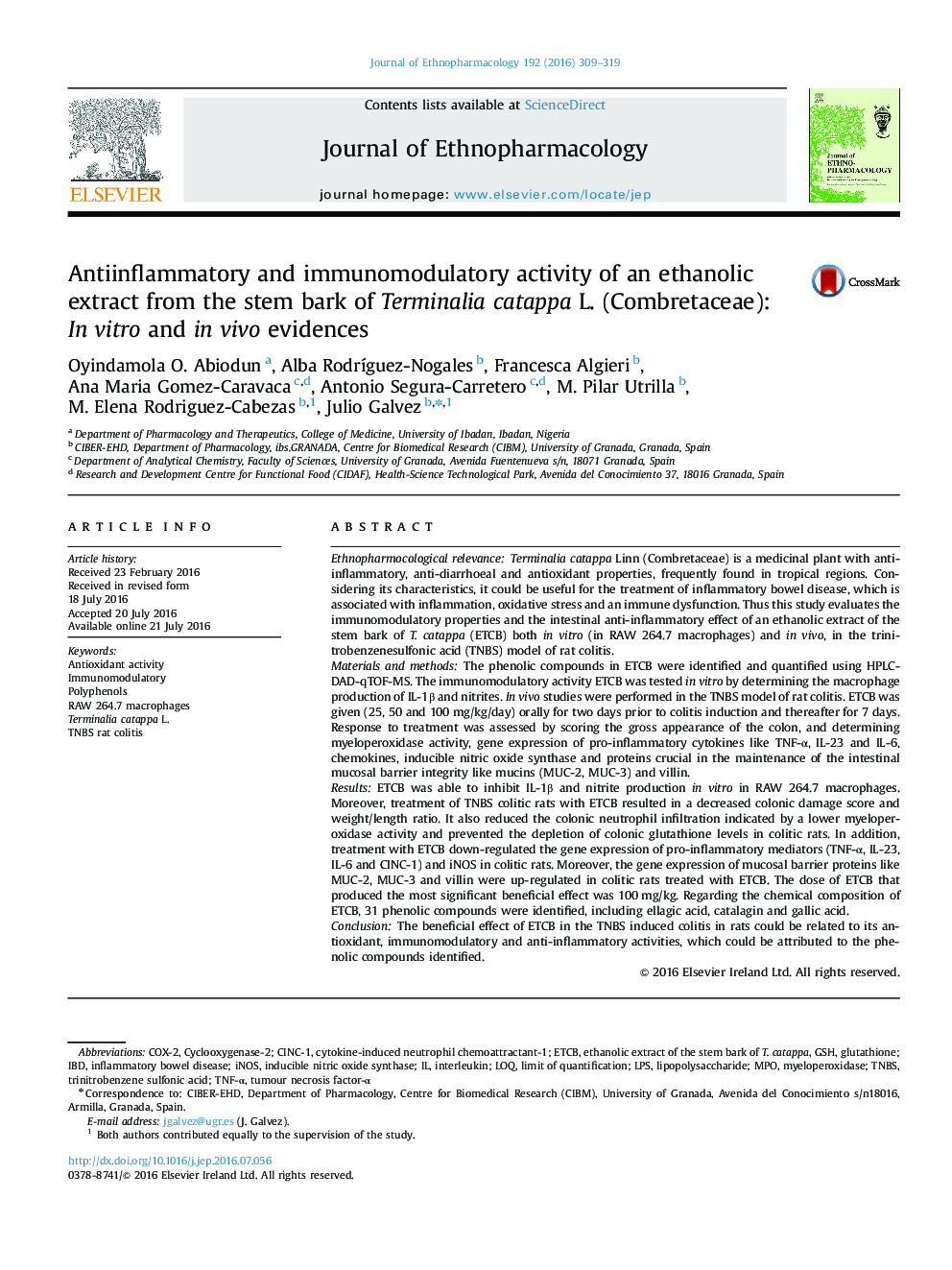| Article ID | Journal | Published Year | Pages | File Type |
|---|---|---|---|---|
| 2544559 | Journal of Ethnopharmacology | 2016 | 11 Pages |
Ethnopharmocological relevanceTerminalia catappa Linn (Combretaceae) is a medicinal plant with anti-inflammatory, anti-diarrhoeal and antioxidant properties, frequently found in tropical regions. Considering its characteristics, it could be useful for the treatment of inflammatory bowel disease, which is associated with inflammation, oxidative stress and an immune dysfunction. Thus this study evaluates the immunomodulatory properties and the intestinal anti-inflammatory effect of an ethanolic extract of the stem bark of T. catappa (ETCB) both in vitro (in RAW 264.7 macrophages) and in vivo, in the trinitrobenzenesulfonic acid (TNBS) model of rat colitis.Materials and methodsThe phenolic compounds in ETCB were identified and quantified using HPLC-DAD-qTOF-MS. The immunomodulatory activity ETCB was tested in vitro by determining the macrophage production of IL-1β and nitrites. In vivo studies were performed in the TNBS model of rat colitis. ETCB was given (25, 50 and 100 mg/kg/day) orally for two days prior to colitis induction and thereafter for 7 days. Response to treatment was assessed by scoring the gross appearance of the colon, and determining myeloperoxidase activity, gene expression of pro-inflammatory cytokines like TNF-α, IL-23 and IL-6, chemokines, inducible nitric oxide synthase and proteins crucial in the maintenance of the intestinal mucosal barrier integrity like mucins (MUC-2, MUC-3) and villin.ResultsETCB was able to inhibit IL-1β and nitrite production in vitro in RAW 264.7 macrophages. Moreover, treatment of TNBS colitic rats with ETCB resulted in a decreased colonic damage score and weight/length ratio. It also reduced the colonic neutrophil infiltration indicated by a lower myeloperoxidase activity and prevented the depletion of colonic glutathione levels in colitic rats. In addition, treatment with ETCB down-regulated the gene expression of pro-inflammatory mediators (TNF-α, IL-23, IL-6 and CINC-1) and iNOS in colitic rats. Moreover, the gene expression of mucosal barrier proteins like MUC-2, MUC-3 and villin were up-regulated in colitic rats treated with ETCB. The dose of ETCB that produced the most significant beneficial effect was 100 mg/kg. Regarding the chemical composition of ETCB, 31 phenolic compounds were identified, including ellagic acid, catalagin and gallic acid.ConclusionThe beneficial effect of ETCB in the TNBS induced colitis in rats could be related to its antioxidant, immunomodulatory and anti-inflammatory activities, which could be attributed to the phenolic compounds identified.
Graphical abstractFigure optionsDownload full-size imageDownload high-quality image (209 K)Download as PowerPoint slide
